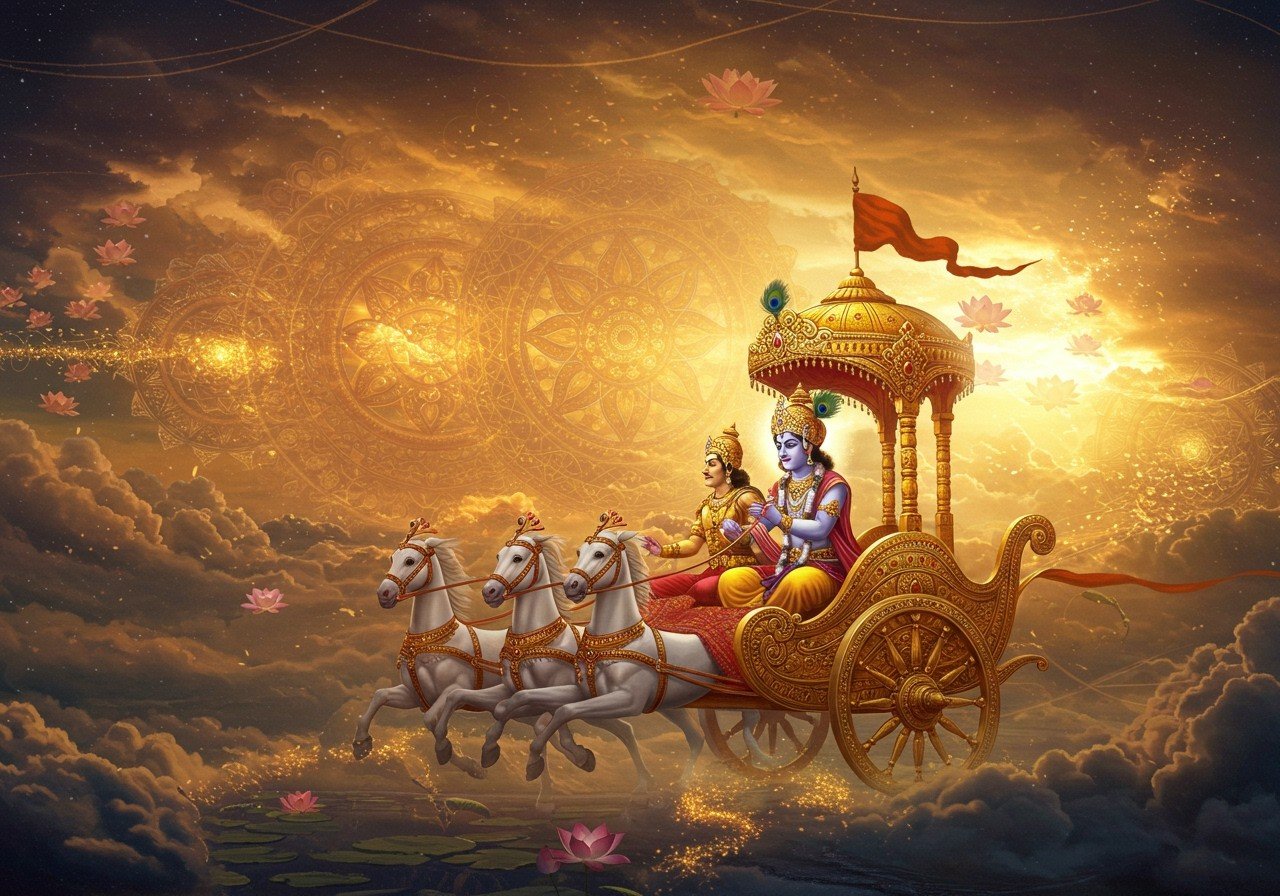
Karma Yoga, one of the four principal paths of yoga, emphasizes selfless action and duty. Deeply rooted in ancient Indian philosophy, particularly the Bhagavad Gita, Karma Yoga instructs individuals to perform their duties without being attached to the results, fostering inner peace and fulfillment. This exploration delves into the wisdom of Karma Yoga through scriptural references and insightful quotes, providing a comprehensive understanding for those seeking this path.
Understanding the Essence of Karma Yoga
Karma Yoga is often referred to as the yoga of action. Its core tenets revolve around selfless service and ethical conduct. A cornerstone of Hindu philosophy, Karma Yoga integrates spiritual principles into daily life. The central concept is performing one’s dharma (duty) without concern for the outcomes. This practice facilitates self-realization and the pursuit of liberation, known as moksha. Many historical figures and spiritual leaders have embraced Karma Yoga, demonstrating its enduring relevance.
Karma Yoga is interwoven with other yogic paths, such as Bhakti Yoga (devotion) and Jnana Yoga (knowledge), creating a holistic approach to spiritual development. In contemporary society, Karma Yoga holds significant importance for promoting social responsibility and ethical behavior.
Karma Yoga in the Bhagavad Gita
The Bhagavad Gita, a revered Hindu scripture, eloquently presents the teachings of Karma Yoga. The Gita emphasizes acting without attachment to results. Chapter 3, known as “Karma-yoga,” elaborates on these principles through the dialogue between Lord Krishna and Arjuna. This discourse illuminates how Karma Yoga provides guidance through moral dilemmas, offering a framework for navigating life’s complexities. The concept of Nishkama Karma, action without personal gain, is paramount in Karma Yoga. This practice is instrumental in resolving internal conflicts and fostering spiritual growth.
Key Principles and Quotes of Karma Yoga
Here are some insightful quotes that encapsulate the essence of Karma Yoga:
- “Your duty is to perform your duty without concern for the results.” This underscores the importance of focusing on the action itself rather than the outcome. It encourages detachment from personal gain and fosters a sense of equanimity.
- “Act selflessly, without desire.” This emphasizes the importance of pure intention. By acting without selfish desires, one cultivates a sense of detachment and inner peace. Selfless action purifies the heart and mind, contributing to spiritual evolution.
These quotes illuminate the importance of selflessness and detachment from outcomes in Karma Yoga. They teach us the delicate balance between action and inaction while emphasizing the significance of intention. Reflecting on these principles can guide us in integrating Karma Yoga into our daily lives. For deeper exploration of related concepts, consider exploring resources on Dharma and Karma.
Karma Yoga Shlokas: Embracing Ancient Wisdom
Shlokas, sacred verses from Hindu scriptures, encapsulate profound spiritual teachings. Key shlokas from the Bhagavad Gita elucidate the principles of Karma Yoga. Reciting and contemplating these shlokas enhances understanding and facilitates the practice of Karma Yoga. They serve as aids for meditation and mindfulness, preserving and transmitting this ancient wisdom across generations. You can delve deeper into sacred Hindu scriptures to enrich your understanding of Karma Yoga. Explore Hindu scriptures in detail for a comprehensive understanding of these texts.
Integrating Karma Yoga into Daily Life
To integrate Karma Yoga into your daily routine, consider these practical steps:
- Mindfulness and Intention: Approach all tasks with mindfulness and intention. This cultivates awareness of your actions and their impact. By focusing on the present moment, you cultivate a sense of purpose and presence in every action.
- Selflessness and Compassion: Act with selflessness and compassion. Consider the well-being of others in your actions and decisions. This cultivates empathy and fosters a sense of interconnectedness.
- Community Service and Volunteering: Engage in community service or volunteering. Offering your time and skills to help others is a direct application of Karma Yoga principles. It provides an opportunity to practice selfless service and contribute to the greater good.
Poojn.in offers a wide selection of incense and other spiritual products to support your Karma Yoga practice.
Embracing the Wisdom of Karma Yoga
In the journey of life, Karma Yoga provides guidance and solace. By embracing selfless service, we align our actions with higher truths. Performing our duties without attachment cultivates inner peace and liberation. The teachings from the Bhagavad Gita and Swami Vivekananda illuminate the profound impact of our intentions and actions. Through Karma Yoga, we refine our hearts, recognize the divine in others, and discover equanimity in all experiences. It is not merely a practice but a way of life leading to personal growth and a more harmonious world. If you are interested in further exploring spiritual retreats and deepening your practice, consider planning a spiritual retreat. To discover more about spiritual practices and beliefs, you can also explore Hinduism.
Bhagavad Gita Insights on Karma Yoga
- Duty without Attachment: “You have a right to perform your prescribed duty, but you are not entitled to the fruits of action.” This quote emphasizes performing actions without being attached to the outcomes, a cornerstone of Karma Yoga. This detachment fosters inner peace and allows for selfless action.
- Karma Yoga and Liberation: Engaging in selfless service, or Karma Yoga, liberates one from the cycle of birth and death. It is a path towards spiritual freedom and reaching a state beyond suffering. This path is often seen as a way to transcend earthly limitations.
- Superiority of Karma Yoga: Karma Yoga, or action with devotion, is considered superior to renouncing action altogether. It emphasizes active participation in the world while maintaining detachment from results. This active engagement is believed to be a more effective path to liberation.
- Karma Yoga and Self-Purification: Karma Yoga is a path of self-purification. Actions should be performed with the intention of purifying the mind and heart. This purification process leads to spiritual growth and a deeper connection with the divine.
- Peace and Wisdom: Moving through the world without attachment or aversion cultivates peace and wisdom. By detaching from desires and aversions, one finds inner tranquility and a clearer understanding of the self. This state of being allows for greater clarity and wisdom to emerge.
- Equality: A true yogi views all beings with equality, regardless of pleasure or pain. This equanimity is a mark of spiritual maturity and understanding. Seeing the divine in all beings promotes compassion and reduces judgment.
Vivekananda’s Teachings on Karma Yoga
- Nature’s Purpose: Nature exists for the education of the soul. Every experience, positive or negative, serves as a lesson in spiritual growth. This perspective helps one to appreciate the purpose behind all of life’s experiences.
- Judging Actions: Actions should be judged by the spirit and manner in which they are performed, not merely by their nature. The intention behind the action holds greater weight than the action itself. This emphasizes the importance of sincerity and mindful engagement in all activities.
- Humanity’s Goal: The ultimate goal of humankind is knowledge, not pleasure. Pursuing knowledge, particularly self-knowledge, is the path to true fulfillment. This pursuit can lead to a deeper understanding of one’s purpose and connection to the divine.
- Helping Others: Helping others is a privilege that educates the self. Serving others provides valuable opportunities for personal growth and spiritual development. By focusing on the needs of others, we expand our own understanding and compassion.
Essential Concepts in Karma Yoga
- Selfless Service: Karma Yoga involves offering actions and thoughts as divine worship, serving all beings as manifestations of the divine. This practice fosters a sense of unity and interconnectedness with all beings.
- Detachment: True freedom comes from detachment from the results of actions. This understanding liberates one from anxiety and allows for focused action without expectation.
- Work as Worship: Everyday life, with its various duties and responsibilities, becomes a form of worship in Karma Yoga. Every action can be an offering to the divine. This perspective elevates the mundane and infuses daily life with spiritual significance.
- The Importance of Intention: Pure intention is crucial in Karma Yoga. Giving without expecting anything in return, acting from the heart, is a mark of true selfless service. This focus on intention ensures that actions are motivated by love and compassion rather than personal gain.
Poojn.in offers a variety of products to support your spiritual journey, including camphor for rituals and murtis for devotional practices. You can also find helpful resources about Hanuman Chalisa and Ramcharitmanas on our website.


